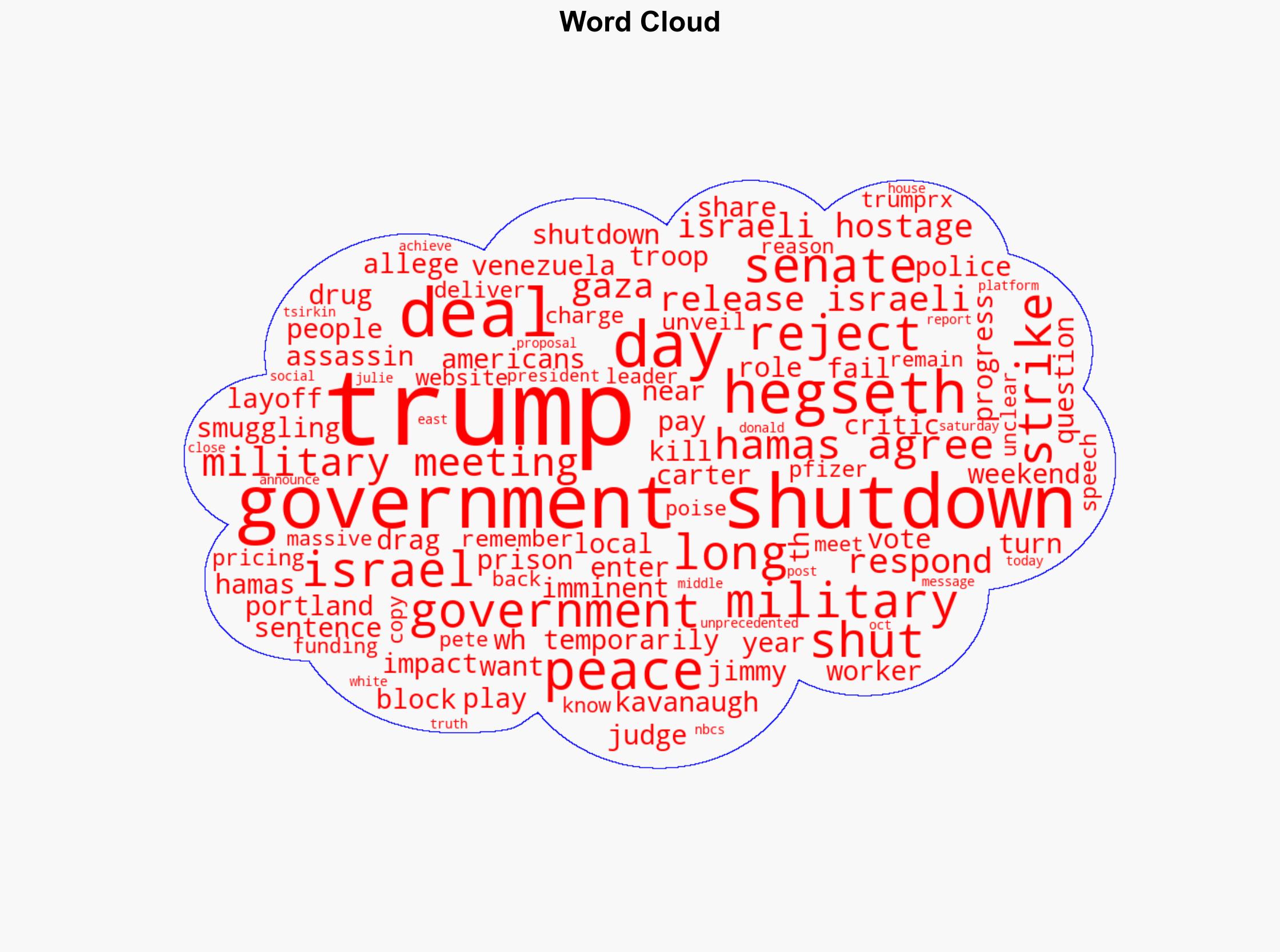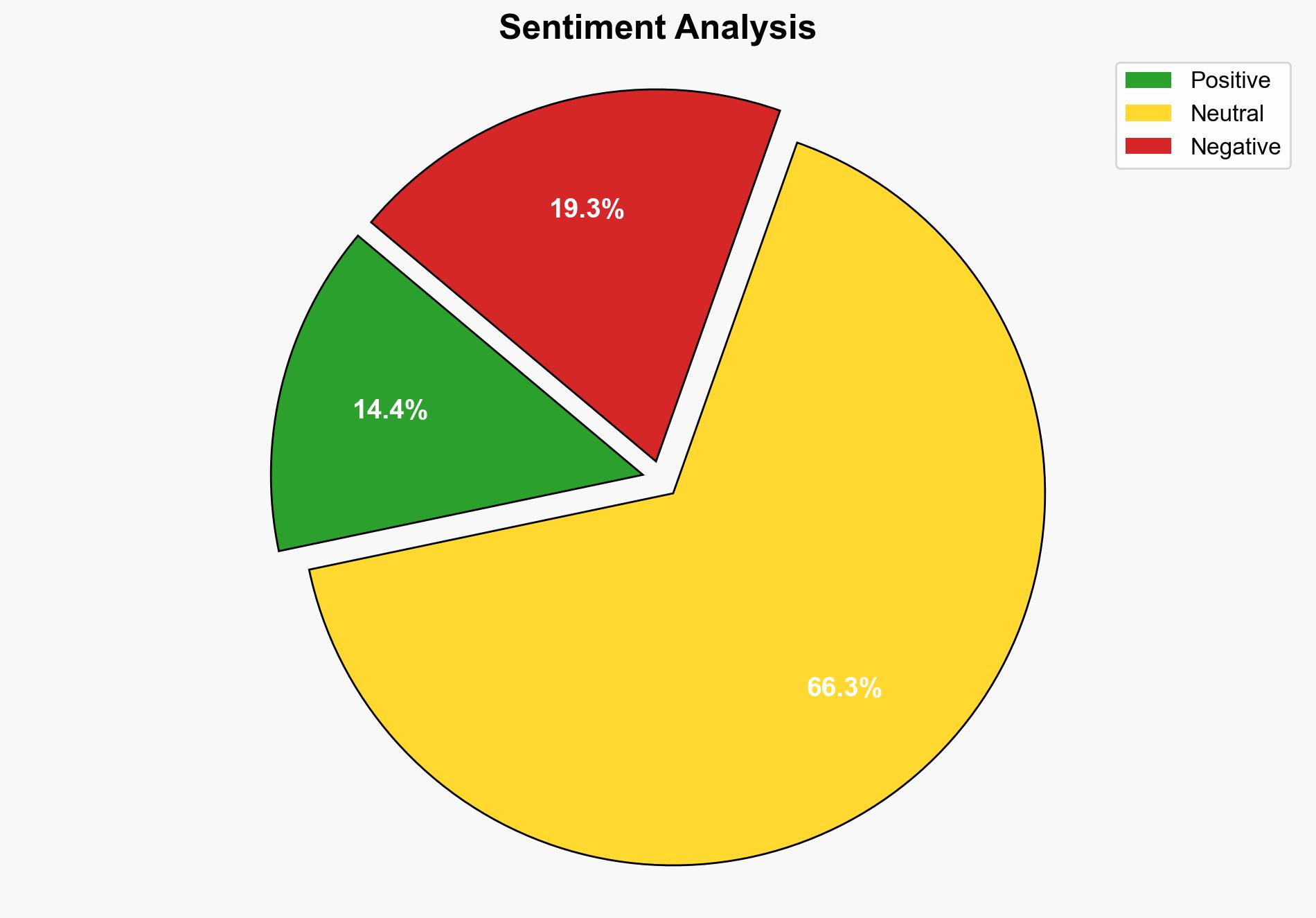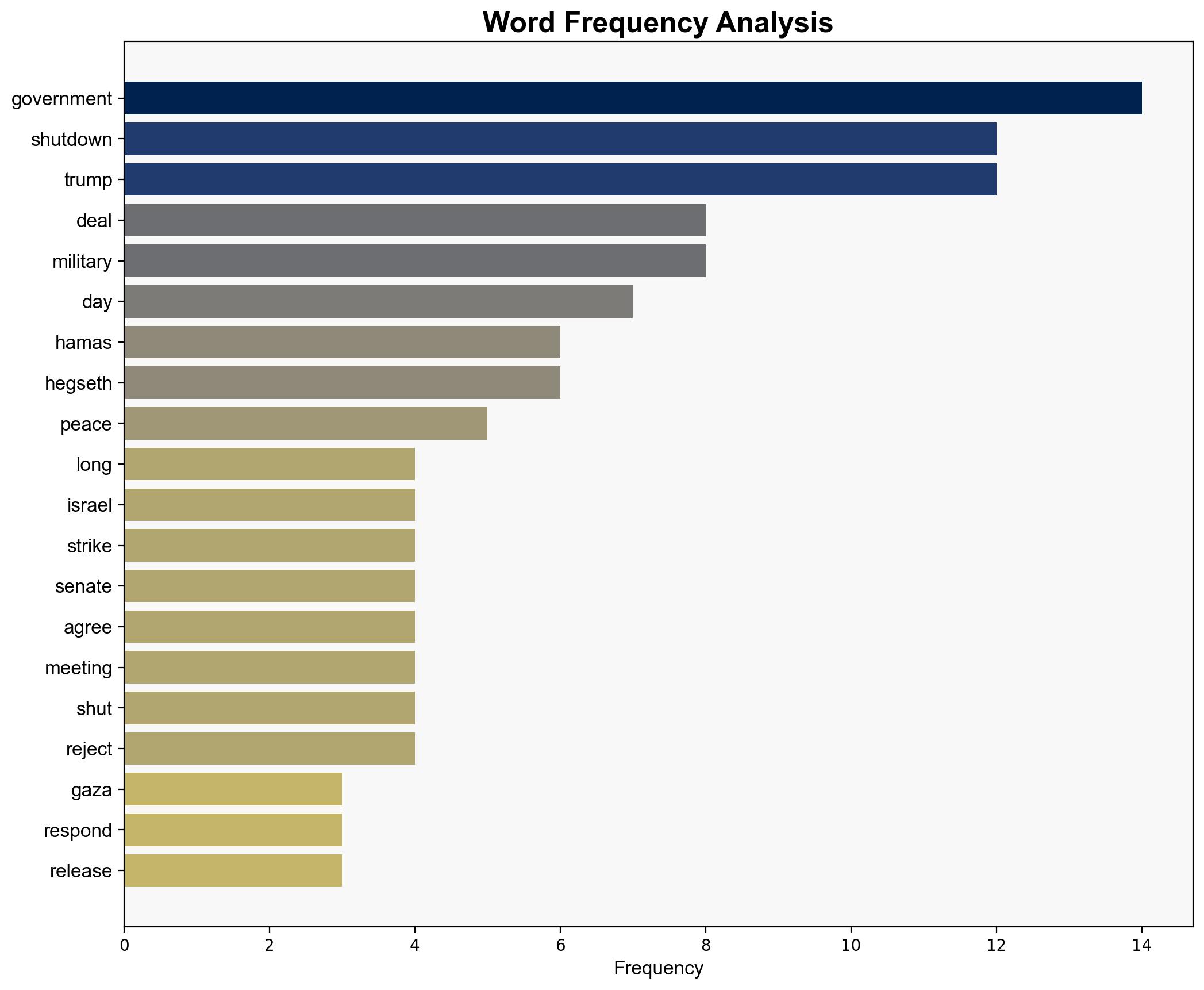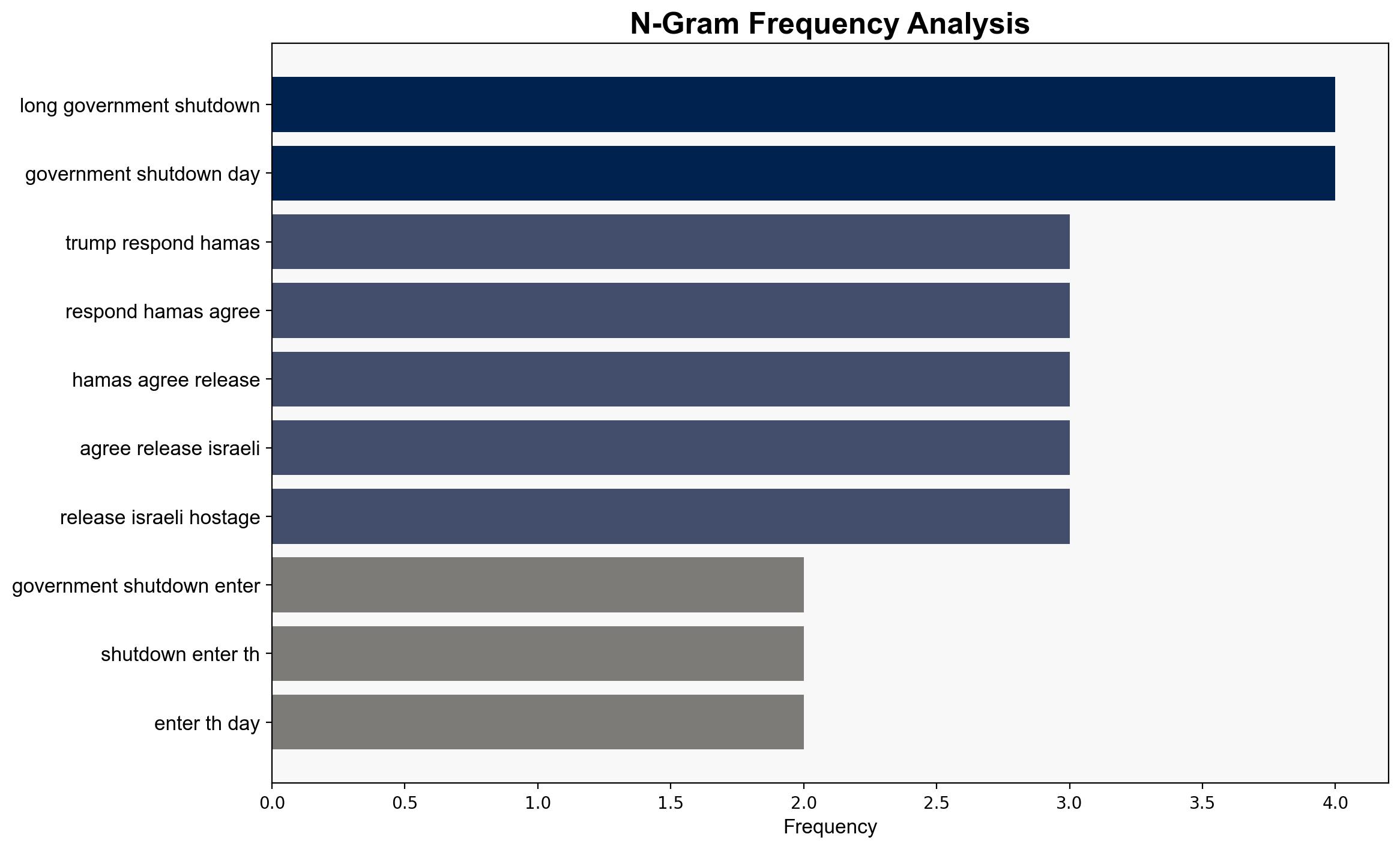Trump Responds After Hamas Agrees to Release Israeli Hostages – TODAY
Published on: 2025-10-04
Intelligence Report: Trump Responds After Hamas Agrees to Release Israeli Hostages – TODAY
1. BLUF (Bottom Line Up Front)
The most supported hypothesis is that the agreement by Hamas to release Israeli hostages is part of a broader strategic maneuver by both Hamas and external actors to influence regional stability and U.S. domestic politics. Confidence level: Moderate. Recommended action: Monitor regional developments closely, assess potential shifts in U.S. foreign policy, and prepare for possible escalations in regional tensions.
2. Competing Hypotheses
Hypothesis 1: Hamas’s agreement to release Israeli hostages is a genuine step towards peace, influenced by diplomatic efforts and internal pressures within Gaza. This action is intended to de-escalate tensions and open pathways for negotiations.
Hypothesis 2: The release is a strategic move by Hamas, possibly influenced by external actors, to gain leverage in ongoing negotiations and to manipulate U.S. domestic politics, particularly during a government shutdown and political turmoil.
Using ACH 2.0, Hypothesis 2 is better supported due to the timing of the release coinciding with significant U.S. political events and the lack of substantial progress in peace negotiations.
3. Key Assumptions and Red Flags
Assumptions:
– Hypothesis 1 assumes that Hamas is acting independently and with genuine intent for peace.
– Hypothesis 2 assumes external influence and strategic manipulation.
Red Flags:
– Lack of transparency in the terms of the hostage release.
– Inconsistent messaging from involved parties, indicating potential deception.
– Absence of concrete follow-up actions towards a broader peace agreement.
4. Implications and Strategic Risks
The release of hostages could lead to temporary de-escalation but may also embolden Hamas or other groups to leverage similar tactics in the future. The situation could exacerbate U.S. domestic political tensions, impacting foreign policy decisions. Potential risks include increased regional instability, retaliatory actions, or shifts in alliances.
5. Recommendations and Outlook
- Enhance intelligence monitoring of regional actors and their communications.
- Engage in diplomatic dialogues to clarify intentions and prevent escalation.
- Scenario Projections:
- Best Case: Genuine peace negotiations commence, leading to regional stability.
- Worst Case: Hostage release is followed by renewed hostilities and regional conflict.
- Most Likely: Temporary de-escalation with no significant progress in peace efforts.
6. Key Individuals and Entities
– Donald Trump
– Pete Hegseth
– Hamas leadership
7. Thematic Tags
national security threats, regional focus, counter-terrorism, geopolitical strategy





